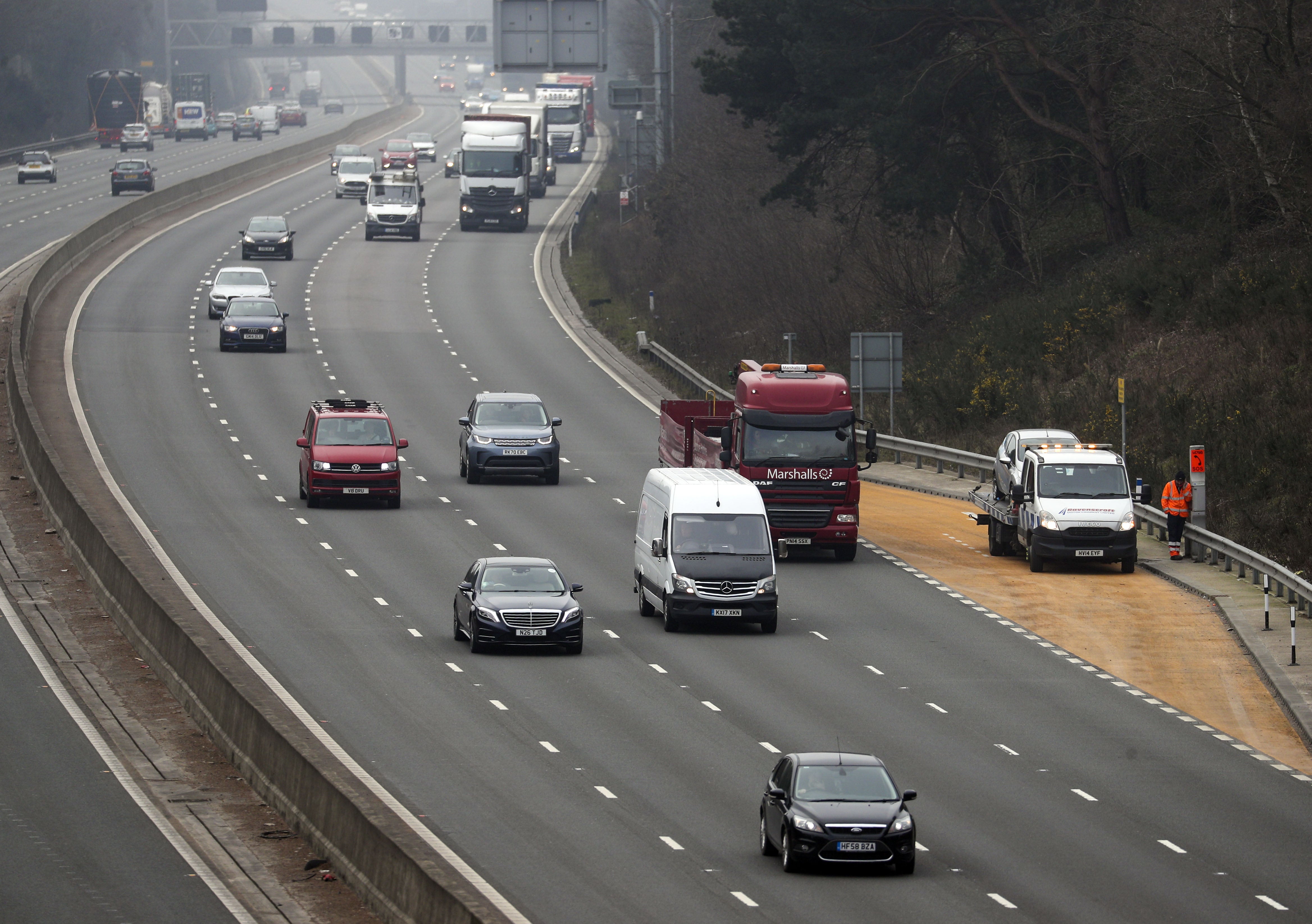New investigation team to probe causes of deadly smart motorway crashes
Collisions on motorways with the hard shoulder removed will fall under the remit of the Road Safety Investigation Branch.

Your support helps us to tell the story
From reproductive rights to climate change to Big Tech, The Independent is on the ground when the story is developing. Whether it's investigating the financials of Elon Musk's pro-Trump PAC or producing our latest documentary, 'The A Word', which shines a light on the American women fighting for reproductive rights, we know how important it is to parse out the facts from the messaging.
At such a critical moment in US history, we need reporters on the ground. Your donation allows us to keep sending journalists to speak to both sides of the story.
The Independent is trusted by Americans across the entire political spectrum. And unlike many other quality news outlets, we choose not to lock Americans out of our reporting and analysis with paywalls. We believe quality journalism should be available to everyone, paid for by those who can afford it.
Your support makes all the difference.Serious smart motorway crashes are set to be investigated by a new independent body focused on road safety.
Collisions on motorways with the hard shoulder removed will fall under the remit of the Road Safety Investigation Branch (RSIB) launched by the Department for Transport (DfT).
Similar stand-alone organisations already exist to investigate air, maritime and rail accidents, but significantly more people are killed on roads than other modes of transport.
The branch will be independent and will be looking to learn lessons
There have been long-standing concerns about the safety of smart motorways following fatal incidents where vehicles stopped in live lanes were hit from behind.
A recent RAC poll of 2,652 UK drivers suggested that 62% believe hard shoulders should be reintroduced across the motorway network.
National Highways, the Government-owned company responsible for motorways and major A roads in England, insists smart motorways are “our safest roads” in terms of the number of serious or fatal casualties on them.
A specialist team of inspectors is being recruited for the RSIB to investigate crashes on all types of UK roads.
Their role will be to find out why collisions happened and make safety recommendations aimed at organisations such as the DfT and police forces.
They will also provide insight into trends relating to new technologies which could include self-driving vehicles, e-scooters and electric cars.
Accident investigation branches do not replace police inquiries as they are not responsible for identifying blame or liability.
Provisional DfT figures show there were 1,560 fatalities on Britain’s roads last year.
There was no significant fall in the annual number of road deaths from 2012 until coronavirus lockdowns led to a huge reduction in traffic in 2020.
Roads minister Baroness Vere said: “The UK may have some of the safest roads in the world, but tragedies still happen and any injury or death on our road network is one too many.
“That’s why we’re establishing the Road Safety Investigation Branch, so we can boost safety for road users even further and also bring safety measures in line with other modes of transport and the future of travel.”
Steve Gooding, director of the RAC Foundation, told the PA news agency: “The branch will need to be selective in looking into incidents that shed light on recurring issues, such as the concerns about collisions on motorways where the hard shoulder has been turned into a running lane.
“The job of investigators will be to look for background themes and patterns that link a number of collisions and then recommend actions that could prevent them repeating.
“This is about the whole road transport system. The new branch could decide to look at anything, from the impact of pressure on commercial drivers to meet deadlines to the way we use smart motorways and all things in between.
“The key is that the branch will be independent and will be looking to learn lessons, not point the finger of blame.”